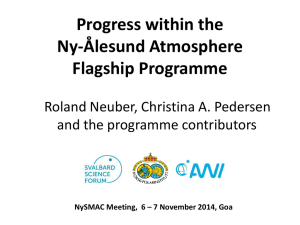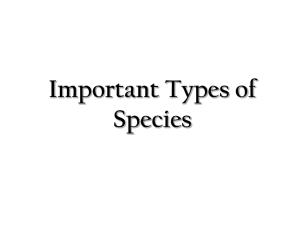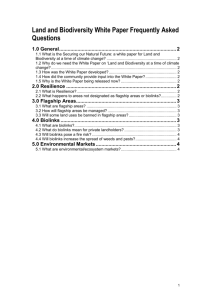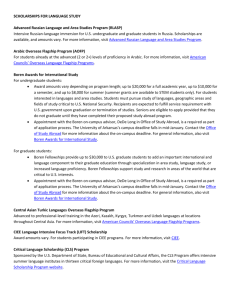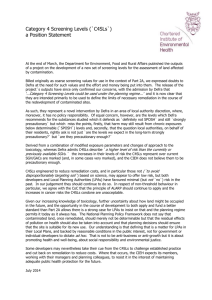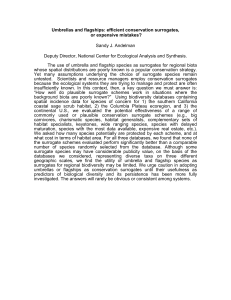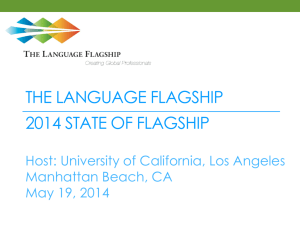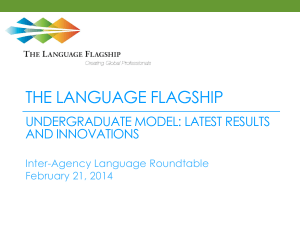here - UKOTCF
advertisement
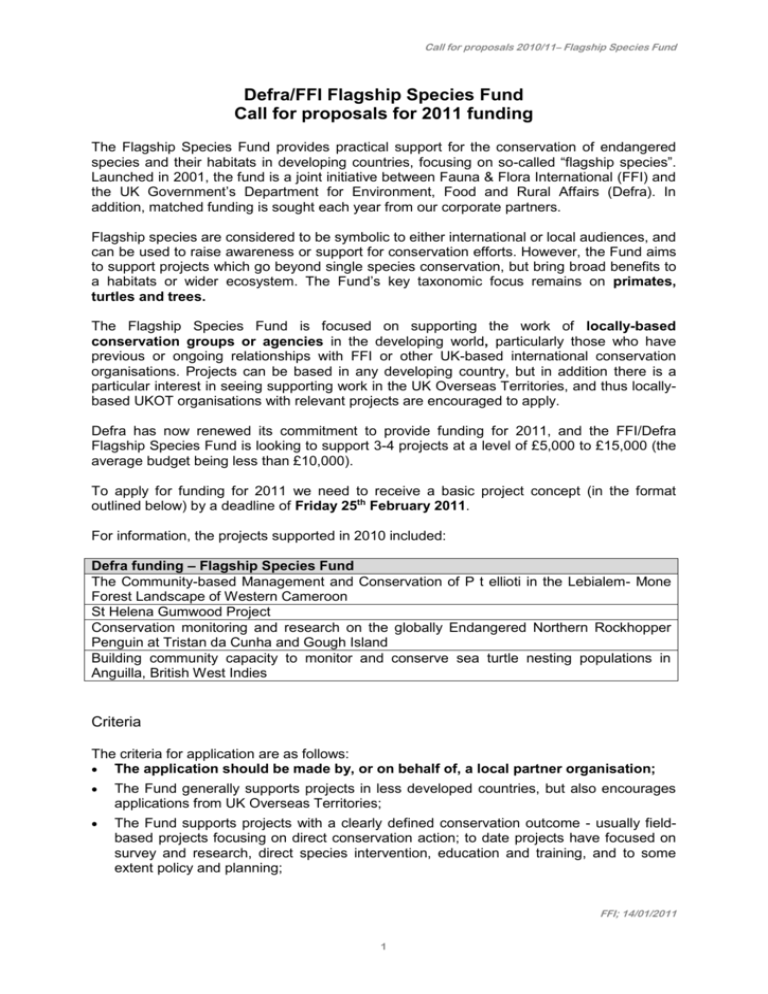
Call for proposals 2010/11– Flagship Species Fund Defra/FFI Flagship Species Fund Call for proposals for 2011 funding The Flagship Species Fund provides practical support for the conservation of endangered species and their habitats in developing countries, focusing on so-called “flagship species”. Launched in 2001, the fund is a joint initiative between Fauna & Flora International (FFI) and the UK Government’s Department for Environment, Food and Rural Affairs (Defra). In addition, matched funding is sought each year from our corporate partners. Flagship species are considered to be symbolic to either international or local audiences, and can be used to raise awareness or support for conservation efforts. However, the Fund aims to support projects which go beyond single species conservation, but bring broad benefits to a habitats or wider ecosystem. The Fund’s key taxonomic focus remains on primates, turtles and trees. The Flagship Species Fund is focused on supporting the work of locally-based conservation groups or agencies in the developing world, particularly those who have previous or ongoing relationships with FFI or other UK-based international conservation organisations. Projects can be based in any developing country, but in addition there is a particular interest in seeing supporting work in the UK Overseas Territories, and thus locallybased UKOT organisations with relevant projects are encouraged to apply. Defra has now renewed its commitment to provide funding for 2011, and the FFI/Defra Flagship Species Fund is looking to support 3-4 projects at a level of £5,000 to £15,000 (the average budget being less than £10,000). To apply for funding for 2011 we need to receive a basic project concept (in the format outlined below) by a deadline of Friday 25th February 2011. For information, the projects supported in 2010 included: Defra funding – Flagship Species Fund The Community-based Management and Conservation of P t ellioti in the Lebialem- Mone Forest Landscape of Western Cameroon St Helena Gumwood Project Conservation monitoring and research on the globally Endangered Northern Rockhopper Penguin at Tristan da Cunha and Gough Island Building community capacity to monitor and conserve sea turtle nesting populations in Anguilla, British West Indies Criteria The criteria for application are as follows: The application should be made by, or on behalf of, a local partner organisation; The Fund generally supports projects in less developed countries, but also encourages applications from UK Overseas Territories; The Fund supports projects with a clearly defined conservation outcome - usually fieldbased projects focusing on direct conservation action; to date projects have focused on survey and research, direct species intervention, education and training, and to some extent policy and planning; FFI; 14/01/2011 1 Call for proposals 2010/11– Flagship Species Fund In line with the FFI mission statement, Flagship Species Fund projects are expected to take account of human needs in their planning and operation; Although focused on “flagship species” it is expected that projects can demonstrate impacts beyond the single species, and on the wider habitat and ecosystem; Projects must fit with the taxonomic priorities of the Fund. In previous years funding has been restricted to projects focused on primates, turtles and trees. These are still identified as the priority taxa for investment, however Defra have agreed to consider a small number of projects outside these criteria, which address other high profile flagship species or clear situations of “locally appropriate flagship species”, where specific relevance of a species has already been established by a local community with which the project will work. Flagship Species Fund projects are typically of 6-18 months duration, and ideally should be in a position to start in mid 2011 Application procedure Applicants should produce a one or two page project concept (in English) including the following information: The focal flagship species/taxa, and justification for its status as a flagship The country of operation The name of the applicant (local in-country) organisation The total budget and other sources of finance The amount requested from the Flagship Species Fund The conservation problem to be addressed The objectives of the project The proposed activities The expected outcomes The timeframe for the project Contact persons in applying institution/agency (and in FFI, if relevant) Project concepts must be sent to the Flagship Species Fund coordinator at amy.hinsley@ fauna-flora.org by Friday 25th February 2011. Applications will be assessed internally on: Clearly demonstrated conservation need Taxonomic fit, or clear justification as a flagship species Likely technical and financial feasibility Expected conservation outcomes Sustainability of the project Value for money In addition, Defra will undertake their own secondary review (involving their species advisor along with the local FCO office) taking into account the appropriateness of the proposed methods, any local issues (including security issues) and the fit with Defra policy priorities. FFI; 14/01/2011 2 Call for proposals 2010/11– Flagship Species Fund Projects which fail to be supported under the Defra component of the Flagship Species Fund may be reconsidered for funding under the corporate component, as and when funds become available for this. Operation of the fund If a project is approved by the internal review and by Defra, the funding available will be confirmed. At this stage a full outline will be required from the applicant before a grant agreement can be prepared. Funding can only be transferred once the grant agreement is in place. Subject to receipt of funds for Defra, and completion of paperwork, funds will be transferred to approve projects in mid 2011. The funding will be transferred directly in one or two tranches. The project is expected to provide the Flagship Species Fund co-ordinator at FFI with reports twice a year (July 2011 and December 2011), in standard formats to meet Defra’s reporting deadlines. A final project evaluation will also be required. In addition, projects will be asked to provide human-interest stories and photographs of their activities to be used in Defra communications and on the FFI Flagship Species Fund webpage. FFI; 14/01/2011 3

